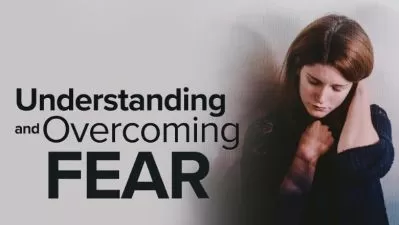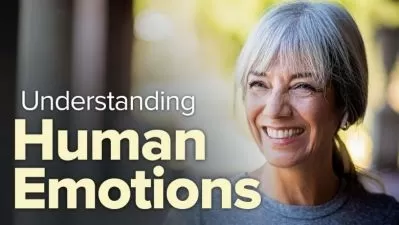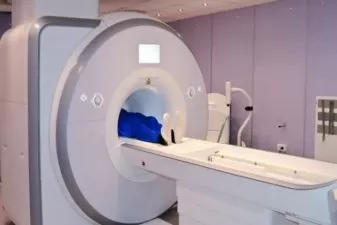Defense Mechanisms: How People Respond to Stress
Dr. G. Day Richardson
2:22:46
Description
Improve your relationships by learning how others respond to stress. (Projection, Splitting, Repression, Humor, & More)
What You'll Learn?
- How individuals respond to stress and conflicts.
- Recognize which type of defense mechanisms an individual is using.
- How to better navigate relationships (romantic, professional, friendships) by understanding how people respond to stressful events.
- How to determine if any individual would be a good fit for therapy by exploring their ego functioning.
- How to apply this information to clinical practice, including psychotherapy.
- Understand all of the defense mechanisms, including the pathological (level I), immature (level II), neurotic (level III), and mature (level IV) defenses.
- What are the Ego, Id, and Superego (Freud's structural model).
- What are the Conscious, Subconscious, and Unconscious parts of the mind.
- And much more!
Who is this for?
What You Need to Know?
More details
DescriptionAre you interested in learning why individuals behave in certain ways during times of stress?
Consider this example:Â A wife who was reprimanded at work goes home and yells at her husband for not cleaning the dishes.
There is a specific defense mechanism that this individual is utilizing! It's called displacement, and this is one of the dozens of defense mechanisms that we will explore in this course!
A few other examples of defense mechanisms include projecting feelings onto another, using humor to lighten a situation, regress to a previous stage of development, and block out traumatic memories from the mind.
Welcome to the course on Defense Mechanisms! This course is packed full of high-yield information to help you better understand how individuals respond to difficult situations. At completion of this course, you will have competency in defining, identifying, and understanding all major defense mechanisms. This course is led by expert Dr. G. Day Richardson III, an accomplished American psychiatrist and educator, and this course on Defense Mechanisms is comprised of the clear, concise, and high-yield lectures that his students love.
Defense mechanisms are behaviors that individuals employ, most often on an unconscious level, to handle conflict. Therefore, in addition to defense mechanisms this course will also provide a review of Freud's structural theory of the mind (Id, Ego, and Superego) as well as explore Ego Functions, which will help you identify which individuals may benefit from psychotherapy.
This course is designed for mental health professionals, but it is delivered in a way that anyone, regardless of educational background, can appreciate the information presented.
This course is perfect for:
Therapists who want to better identify which individuals will benefit from certain psychotherapy modalities.
Clinicians who wish to better understand the unconscious processes that motivate behavior.
Anyone who would like to better navigate their relationships with friends, colleagues, coworkers, and romantic partners.
Anyone who is interested in learning more about the mind and the fascinating field of psychology & behavior!
Who this course is for:
- Therapists and clinicians working in mental health.
- Anyone interested in learning more about psychology.
- Anyone wanting to improve their relationships by better understanding how others think and behave during times of stress.
Are you interested in learning why individuals behave in certain ways during times of stress?
Consider this example:Â A wife who was reprimanded at work goes home and yells at her husband for not cleaning the dishes.
There is a specific defense mechanism that this individual is utilizing! It's called displacement, and this is one of the dozens of defense mechanisms that we will explore in this course!
A few other examples of defense mechanisms include projecting feelings onto another, using humor to lighten a situation, regress to a previous stage of development, and block out traumatic memories from the mind.
Welcome to the course on Defense Mechanisms! This course is packed full of high-yield information to help you better understand how individuals respond to difficult situations. At completion of this course, you will have competency in defining, identifying, and understanding all major defense mechanisms. This course is led by expert Dr. G. Day Richardson III, an accomplished American psychiatrist and educator, and this course on Defense Mechanisms is comprised of the clear, concise, and high-yield lectures that his students love.
Defense mechanisms are behaviors that individuals employ, most often on an unconscious level, to handle conflict. Therefore, in addition to defense mechanisms this course will also provide a review of Freud's structural theory of the mind (Id, Ego, and Superego) as well as explore Ego Functions, which will help you identify which individuals may benefit from psychotherapy.
This course is designed for mental health professionals, but it is delivered in a way that anyone, regardless of educational background, can appreciate the information presented.
This course is perfect for:
Therapists who want to better identify which individuals will benefit from certain psychotherapy modalities.
Clinicians who wish to better understand the unconscious processes that motivate behavior.
Anyone who would like to better navigate their relationships with friends, colleagues, coworkers, and romantic partners.
Anyone who is interested in learning more about the mind and the fascinating field of psychology & behavior!
Who this course is for:
- Therapists and clinicians working in mental health.
- Anyone interested in learning more about psychology.
- Anyone wanting to improve their relationships by better understanding how others think and behave during times of stress.
User Reviews
Rating
Dr. G. Day Richardson
Instructor's Courses
Udemy
View courses Udemy- language english
- Training sessions 6
- duration 2:22:46
- Release Date 2023/07/04



















